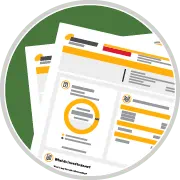There is a lot of misinformation out there about our Rebasing application and we understand it can be confusing. We are addressing the most popular claims and providing you with the facts.
Subsidy
Claim
Enbridge Gas existing customers subsidize new natural gas connections
Fact
Enbridge Gas follows the current rules and the requirements of the OEB, which prevent existing natural gas customers from unduly subsidizing the cost of new natural gas connections.

- The OEB has decided that new gas customers must pay the total cost of connecting to the gas system in advance. This decision represents a significant change to the current customer connection policy. As a result, the costs of buying a new home or opening a small business would increase.
- In response to this decision, the Government of Ontario introduced Bill 165, which, if passed, would temporarily return to the previous customer connection policy. Bill-165 requires the OEB to reconsider its decision with input from impacted Ontarians and the government’s energy transition policy.
- The current OEB policy, also known as EBO-188, ensures that existing ratepayers are protected from the cost of expanding the natural gas system. It also ensures that the costs are appropriately borne by the customers who will benefit from the new infrastructure. EBO-188 allows the cost of connection to the natural gas system to be spread over a defined period, which has historically been up to 40 years.
- Paying connection costs through energy rates over a period of time is standard practice for regulated utility services.
Taxes and permit fees
Claim
Enbridge Gas operates its infrastructure in municipal right of ways without providing compensation to municipalities.
Fact
This is incorrect. Enbridge Gas pays municipal property taxes, along with permit and inspection fees.

- Enbridge Gas provides natural gas service to approximately 3.9 million customers in 313 municipalities across Ontario through a network of 151,000 kilometres of pipeline—and pays taxes on every kilometre of that pipe.
- As the operator of gas pipelines, Enbridge Gas has always paid municipal property taxes across Ontario in accordance with the Ontario Assessment Act.
- In addition to taxes, Enbridge Gas pays municipal permit and inspection fees for each new pipe installed or existing one maintained. Municipalities set the amount of these fees to recover their reasonable costs of administering and issuing permits.
- When Enbridge Gas is taxed, the cost is considered an operating cost and is passed on to Ontario consumers, as is standard practice with all public utilities. Ontario has the highest pipeline assessment base rates in Canada, which means that Ontario’s municipalities benefit more than those in other provinces.
- In 2023, Enbridge Gas invested $330 million in the maintenance and integrity of its natural gas system across Ontario. These investments help to maintain the safe and reliable operation of the natural gas system, as well as provide employment and other economic benefits.
2023 Enbridge Gas tax contributions
Rate impacts
Claim
Without the OEB decision, customer rates will increase by $300 to $600 over the next five years.
Fact
These claims are based on incorrect information. Rate impacts beyond 2024 have not been determined.

- These claims are based on dividing the cost of capital expenditures from 2024 to 2028 over a number of customers. This is an oversimplified explanation on how capital expenditure costs would be spread across customer rates. This method is inaccurate and does not reflect the smaller impact our rebasing application has on residential customers.
- The correct rate impact of all matters determined by the OEB in its most recent decision is approximately two percent; less than $25 per year for the average customer for 2024.
- The 2024 capital reduction of $250 million is already included in customers’ base rates, starting in 2024.
- Rate impacts beyond 2024 have not been determined as the OEB has yet to approve a pricing formula.
- Once a pricing formula is approved by the OEB, it will be applied to these base rates for the years 2025 to 2028, ensuring that the capital expenditure reduction persists throughout the rate term until rates are next rebased.
